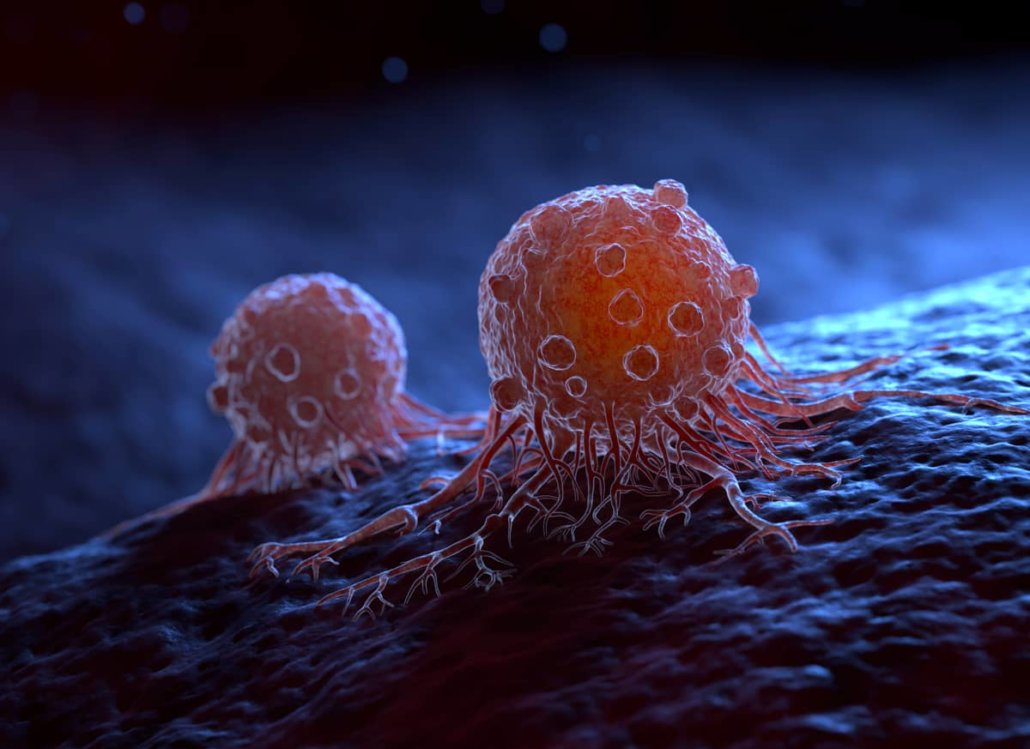Radiotherapy Technology
In the case of radiotherapy of metastases, there are different variants of treatment – roughly divided into teletherapy and brachytherapy. In teletherapy, we irradiate the affected region externally from some distance through the skin. In brachytherapy, the radiation source is inserted into the body or applied to the skin directly near the metastasis.
Important: Knowing the exact position
Metastases can occur in different parts of the body and in different variants. In order to select the optimal radiation treatment for metastases, precise localization or spread imaging is required. Our radiology team at Radiologie München achieves this through CT examinations, CT-supported biopsies or even MRI diagnostics.
Where can you have radiation therapy?
In our group of practices, we offer one of the most important therapeutic procedures for the treatment of primary tumors and metastases originating from them. Radiation therapy of malignant cancer cells is very efficient. Treatment of metastases can also achieve good results with radiotherapeutic measures. Just get in touch with our experienced specialists!

How does radiation therapy work?
Since radiation of metastases very often coincides with systemic therapy of the primary tumor, similar methods are used. If you need further information on this, simply click on “more information”.
What types of metastases are mainly irradiated?
What should be considered before radiotherapy?
Before the first radiotherapy unit, you will have a detailed consultation with your attending doctor. You will be informed about your treatment plan. In addition, the details of the treatment will be discussed with you and what you need to pay attention to on the day of the treatment. The question of whether treatment takes place on an outpatient or inpatient basis is also clarified. You will receive an overview of which documents you need to bring with you and who you can specifically contact if you should feel worse after the treatment.
Usually, you do not have to give up eating or drinking before the treatment. For irradiation of the stomach or intestines or for some forms of brachytherapy, it is necessary to remain fasting. In this case, nothing may be eaten or drunk after 10 p.m. of the previous day. You can get more detailed information about this in advance when you talk to your doctor.
Can you continue to take your medications?
Please tell your doctor in advance what medications or supplements you are currently or regularly taking. Some medications must be temporarily discontinued or replaced because they may have an impact on radiation therapy effectiveness.
What should you wear for radiation therapy?
In general, we recommend wearing comfortable clothing. However, clothing and jewelry that are within the irradiation field must be removed before treatment. Make-up and care products are usually unproblematic.
Can I receive radiation if I have a pacemaker or defibrillator?
For electronic devices such as pacemakers and defibrillators, irradiation can potentially affect function. Please inform your physician as soon as possible to clarify whether these devices are in the treatment area. During the examination, please pay attention to possible symptoms such as palpitations, shortness of breath or dizziness in order to be able to stop the treatment in time.
Can I be irradiated with an artificial joint?
In principle, an artificial joint or prosthesis does not pose a problem during radiation therapy. Please discuss this with your doctor. The device may need to be included in the treatment plan if it is located in the treatment area.
How does radiation therapy work?
Before the treatment of tumor cells can start, preliminary examinations are necessary in order to plan the therapy precisely. Usually, a computer tomography (CT) or a magnetic resonance imaging (MRI) is done at the beginning. Using the image data, the team of doctors and radiation physicists determines and marks the part of the body to be irradiated (irradiation field) and draws up a therapy plan.
The actual therapy is then performed according to the plan – individual times and lengths are presented to our patients during the planning meeting.
What are the side effects of radiation therapy?
Radiation aims to slow cell growth and the spread of cancer cells in the body. Our specialists select the radiation volume in such a way that surrounding healthy tissue is spared as much as possible. Nevertheless, this cannot be completely prevented, since a mostly small dose always reaches the healthy tissue.
Red blood cells are responsible for oxygen transport. If fewer red blood cells are produced, the oxygen supply in the body can be impaired. Therefore, the patient may experience fatigue after the treatment. White blood cells, on the other hand, are important for the immune defence: too few white blood cells can lower the body’s immune defence, which is why patients are more susceptible to diseases.
Irritation of the mucous membranes
During radiation treatment, mucous membranes of organs and tissues located in the irradiation field are irritated. If the mucous membranes are affected, irritations of e.g. intestinal or bladder may occur. Similar to the mucous membranes, the skin also reacts to irradiation. Possible consequences are sunburn-like redness or a tightening or itching of the skin in the irradiation field. Sometimes dehydration can also be observed. Radiation therapy can in principle also lead to hair loss – but at most only locally, in the treated region.
Who is not allowed to have radiation therapy?
Radiation therapy can also be stressful to the body in some cases. For this reason, the need for treatment and the patient’s general physical condition should always be weighed against each other.

